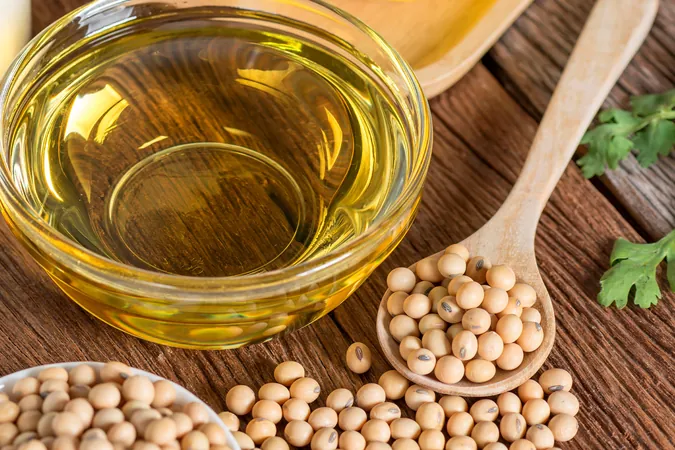
Cutting Back on Butter: A Heart-Saving Strategy You Can't Ignore!
2025-05-15
Author: Wei Ling
You've probably heard the advice: reducing saturated fat is key for better health. But a new extensive study published in JAMA Internal Medicine dives deeper into this age-old wisdom, revealing startling connections between butter consumption and heart disease.
The Study Breakdown: What the Research Uncovered
Researchers meticulously tracked the eating habits of over 220,000 participants for a whopping 33 years, focusing on how much butter they used—cooking with it or adding it directly to their meals. The analysis also considered the consumption of various plant-based oils, including safflower, soybean, corn, canola, and olive.
The results are compelling: those who indulged in the most butter faced a 15% increased risk of dying from all causes compared to butter watchers. Conversely, participants who embraced canola, soybean, and olive oils were rewarded with a 16% lower risk of death. Not all plant oils deliver the same health boon, though—corn and safflower oils did not show similar protective effects.
Protect Your Heart: Why You Should Consider Replacing Butter
The findings also indicated that an uptick in plant-based oils correlated with lower cancer and cardiovascular death rates, while higher butter consumption linked to an increased cancer risk. But here's the kicker: the study doesn’t definitively establish a direct cause-and-effect relationship between your fat choices and lifespan.
Nonetheless, the overarching conclusion supports U.S. Dietary Guidelines, which recommend limiting saturated fats like butter and leaning towards healthier unsaturated fats such as olive oil.
Butter: Is It Time to Say Goodbye?
So, should you erase butter from your diet completely? Not necessarily! Tara M. Schmidt, a leading registered dietitian at the Mayo Clinic Diet, emphasizes assessing your overall dietary patterns.
"If butter is a rare treat on your sourdough toast once a week, go ahead! But if you're slathering it on everything from baked goods to your morning coffee, it’s time to rethink your habits," she advises.
Ultimately, the goal isn’t to eliminate butter but to find thoughtful ways to reduce your intake while still relishing your meals. As Schmidt puts it, "If butter helps you enjoy broccoli, then by all means, keep it!"
Smart Swaps: Embrace Healthier Fats!
For those looking to dial back on butter, Schmidt offers practical tips:
1. Reduce, Don’t Remove.
Instead of cutting butter entirely, focus on reducing how much you use. Some favorite dishes simply need a little of that rich flavor!
2. Choose the Right Oils.
Beware: not all plant oils are created equal. Avoid palm and coconut oils, which are high in saturated fats. Opt for heart-healthy oils like olive and avocado.
3. Find Spreadable Alternatives.
Saturated fats tend to stay solid at room temperature, including butter and stick margarines. For spreading on bread, consider “tub spreads” that mix plant-based oils with a touch of butter.
In essence, by making mindful choices about fats in your diet, you can not only tantalize your taste buds but also boost your heart health. Start today for a longer, healthier tomorrow!




 Brasil (PT)
Brasil (PT)
 Canada (EN)
Canada (EN)
 Chile (ES)
Chile (ES)
 Česko (CS)
Česko (CS)
 대한민국 (KO)
대한민국 (KO)
 España (ES)
España (ES)
 France (FR)
France (FR)
 Hong Kong (EN)
Hong Kong (EN)
 Italia (IT)
Italia (IT)
 日本 (JA)
日本 (JA)
 Magyarország (HU)
Magyarország (HU)
 Norge (NO)
Norge (NO)
 Polska (PL)
Polska (PL)
 Schweiz (DE)
Schweiz (DE)
 Singapore (EN)
Singapore (EN)
 Sverige (SV)
Sverige (SV)
 Suomi (FI)
Suomi (FI)
 Türkiye (TR)
Türkiye (TR)
 الإمارات العربية المتحدة (AR)
الإمارات العربية المتحدة (AR)